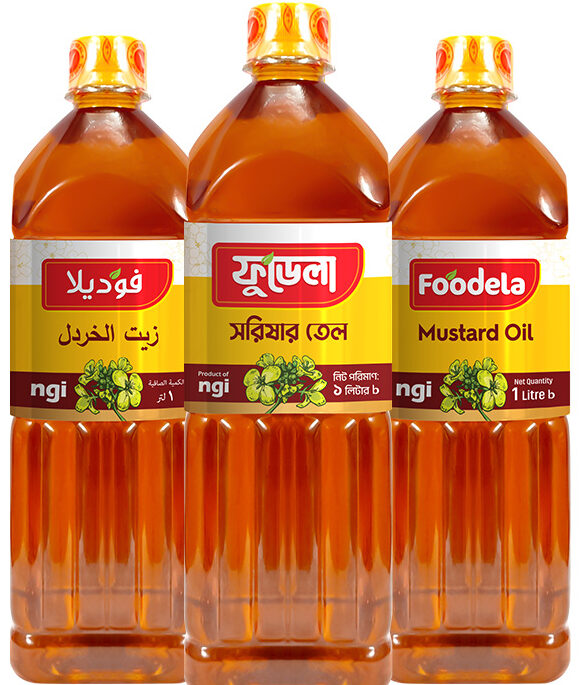Edible oils are a provider of nutritious fats that serve a significant part of our bodies. They fulfill the body’s nutritional requirements, promote growth, and are required for the right working of the nervous and neurological systems, as well as for the natural surroundings of the reproductive system, for appropriate functioning. Furthermore, in addition to this function, they have the potential to be extremely abundant sources of micronutrients and bioactive compounds, including polyphenols, alkaloids, and carotenoids. The need for edible oils in Bangladesh is being satisfied on an annual basis by the importation of crude soybean and palm oil. The impact of mustard seed, sesame seed, lin seed, and ground nut seed, all of which are grown locally, on the manufacturing of edible oils is quite insignificant. The edible oil industry in Bangladesh has undergone significant transformation in the last 20 years as a result of the country’s growing population and higher purchasing power, which has led to a rise in the consumption of the essential culinary ingredient.
Over the past three fiscal years, the total production of oil seeds has remained relatively stable, while the total area that is devoted to the cultivation of oil seeds has expanded. It is possible to obtain an annual production of 2.19 lac M. tons of oil from domestic sources on average. A small amount of ground nut seed, rape seed and canola seed, sesame seed, and mustard seed are imported for domestic extraction. However, the majority of the importation is composed of crude soybean and palm oil, with an insufficient amount of processed soybeans and refining palm oil. According to information provided by the National Board of Revenue (NBR), in the year 2023, a total of around 25.7 lakh tons of soybean and palm oil were imported.
Nevertheless, the number of refiners decreased by one-third during this period, as many were unable to maintain their operations. Currently, only 11 companies are active in the edible oil market. In the oil manufacturing business, Nabil Group of Industries is one of the biggest companies in the country. This group’s company, Nabil Edible Oil Mill, has had a lot of success in the edible oil business in the country. Nowadays,200 tons of oil are being made every day at the mill at Nabil Industrial Park in Daukandi, Rajshahi. The food oil industry in the country has gained new dimensions, and the Nabil Group of Industries’ contribution is significant here.
Nabil Group has also been maintaining its quality while processing the oil so that nutrients are ensured.
Saidur Rahman, Manager of Nabil Edible Oil Mill, said that,
“We are making soybean and mustard oil by following the strictest quality standards. Our daily production potential is 200 tonnes right now, but we want to soon double that. Our main goal is to make healthy, high-quality food oil. “
The whole process of making oil is done very carefully. First and foremost, the best mustard and soybean seeds are picked out and put together. Having done that, it is sent to a lab to be checked for quality. After the quality-checked procedure is done, and if it meets the standards, it is put into the production process. There are eight machine spellers in Nabil Edible Oil Mill’s two production units, which make oil. There are 5-liter, 2-liter, 1-liter, and half-liter bottles of soybean oil on the market. Mustard oil comes in packages ranging in size from 80 ml to 16 liters.
Along with production, the Nabil Group of Industries also maintains a sound distribution process so that consumers can easily get their products. Through Nabil Group’s transportation system and seamless supply chain, this oil gets to every part of the country. The company is trying to make the supply chain even more efficient so that oil is always easy to find on the market as demand for it keeps going up. Saidur Rahman also gives hope and promises to facilitate their delivery system; he said that.
“We’re working to boost our output. We need to improve our supply chain because customer demand is still going up. Nabil Edible Oil has quickly grown to become one of the biggest oil companies in the country thanks to its well-developed supply chain.”
Nabil Edible Oil Mill plans to enhance its production capacity in the future.
Its current daily production capacity is 200 tons, and it plans to boost it to 400 tons shortly. The mill aims to enhance its production capacity through the adoption of new technology and is progressing towards entering the international market. Its objective is to fulfill the nation’s edible oil requirements and provide oil of the appropriate grade.
Nabil Edible Oil Mill has inaugurated a new chapter in the nation’s edible oil industry. Their daily oil production has garnered the faith of the nation’s populace. The company is crucial to the nation’s edible oil industry by producing high-quality oil and efficiently managing the supply chain. Jahan Bux Mandal, Chairman of Nabil Group, stated,
“Our objective is to contribute to the welfare of the country and the nation with a service-oriented mindset.” Our objective is to gain the trust of the nation’s populace by providing clean and high-quality oil. We will persist in our endeavors for the nation’s prosperity.
Nabil Group is specifically dedicated to attaining self-sufficiency in the agricultural sector. The institute’s research personnel is engaged in the development of enhanced seeds. They are perpetually researching to cultivate improved varieties of vegetables, particularly maize, tomato, eggplant, and beans. Additionally, they have constructed an Agricultural Greenhouse with sophisticated technology, which will significantly contribute to the establishment of an eco-friendly and self-sufficient agricultural system. They have been doing their best in this field with the intention of contributing to our country’s economy. Under this methodical and calculated expansion, Nabil Group has turned into a prominent business company in Bangladesh.


